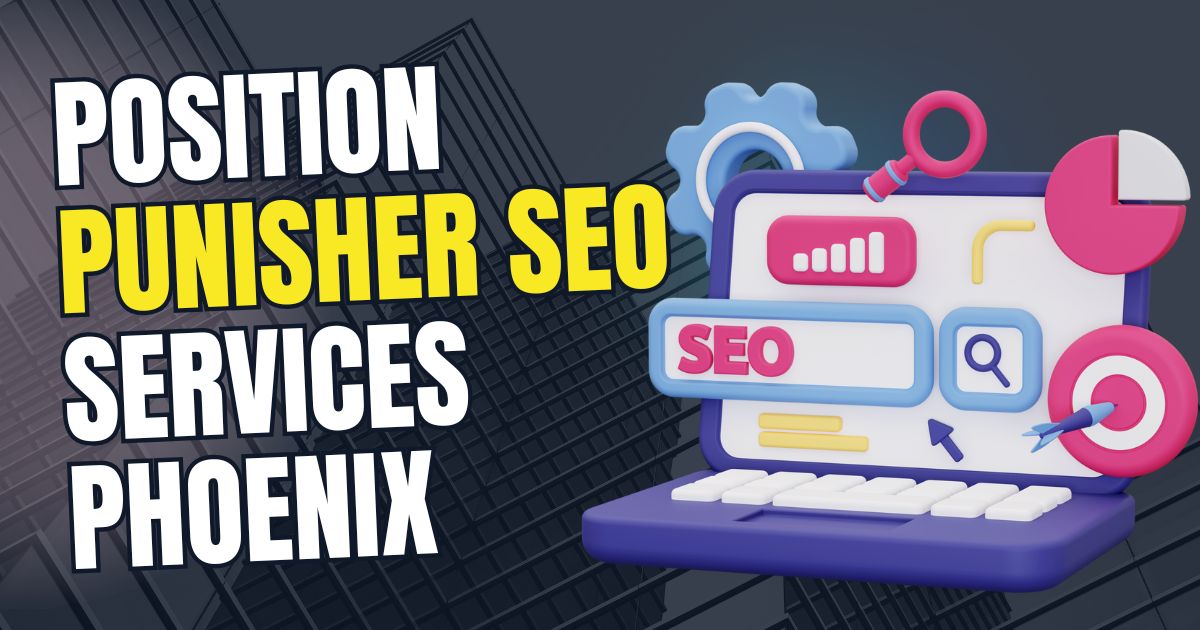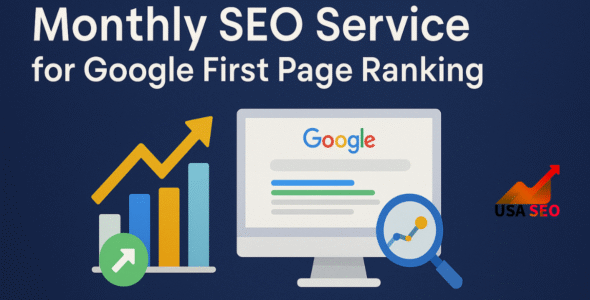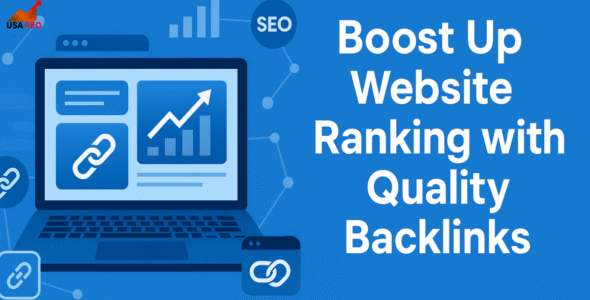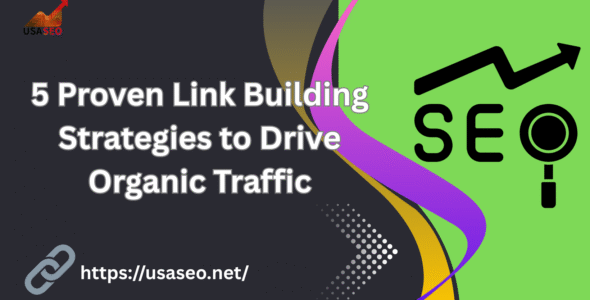Position Punisher SEO Services in Phoenix offers tailored strategies to help grow your business by improving online visibility, boosting search rankings, and attracting more local customers. Our expert team focuses on optimizing your website, building quality backlinks, and enhancing local SEO to ensure your business stands out in the competitive Phoenix market. Drive growth with proven SEO results.
Introduction to SEO Services in Phoenix
SEO services in Phoenix help businesses boost online visibility, drive organic traffic, and enhance their overall digital presence. In today’s competitive market, a strong online presence is essential, and SEO is key to achieving that goal. SEO services in Phoenix include keyword research, on-page optimization, content creation, link building, and technical SEO for high rankings.
SEO consultants in Phoenix help attract more potential customers by targeting relevant keywords and improving your website’s structure and content. Local SEO tactics ensure your business is visible to Phoenix customers, making it easier for them to find you online. SEO services in Phoenix offer tailored solutions for businesses of all sizes to boost growth, generate leads, and enhance reputation.
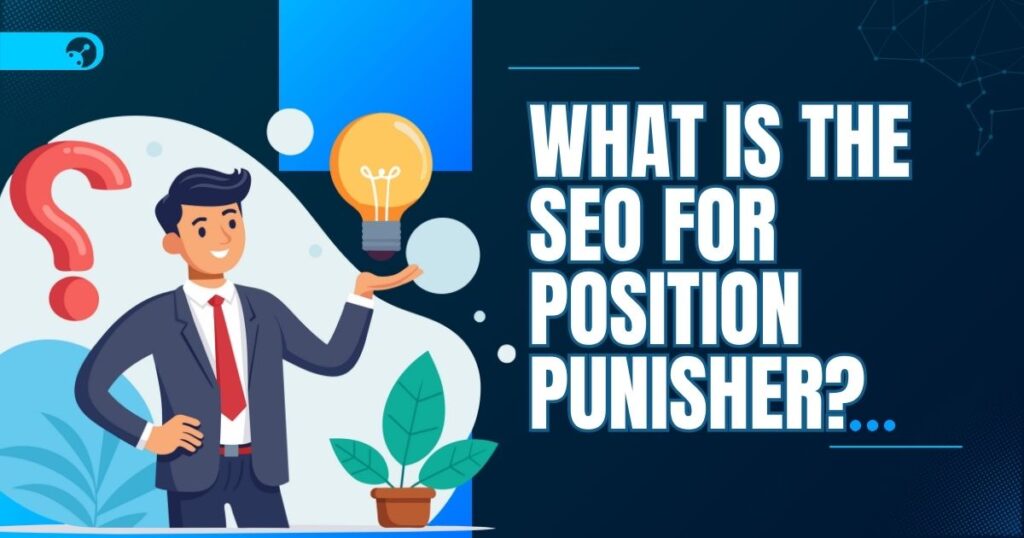
What is the SEO for Position Punisher?
Position Punisher SEO uses aggressive strategies to enhance website rankings on search engine results pages (SERPs). The phrase Position Punisher refers to an aggressive strategy that pushes your website to the top, outranking competitors. This includes on-page optimization, content creation, keyword strategies, link building, and improving site crawlability and speed.
The Position Punisher strategy focuses on competitive research and using effective techniques to outrank competitors in search results. It is often used by organizations seeking strong, quantifiable SEO results to dominate their niche or sector. With Position Punisher SEO Services Phoenix, companies can expect faster, sustainable growth in visibility and traffic, gaining a competitive advantage.
Key Features of Position Punisher SEO Services Phoenix
Position Punisher SEO Services Phoenix takes an aggressive, results-oriented approach to enhancing search engine ranks and increasing online exposure. The key components of this technique are:
- In-depth Keyword Research: Position Punisher SEO begins with detailed keyword research to identify valuable, relevant terms driving targeted traffic. They target both long-tail and short-tail keywords to obtain the most exposure.
- On-Page Optimization: This entails improving your website’s structure, metadata (title tags, Meta descriptions), header tags, and content. The objective is to match each page with relevant keywords while maintaining optimum readability and user experience.
- Technological search engine optimization: Verify the operational soundness of your internet presence. This includes improving site speed, mobile responsiveness, fixing broken links, optimizing images, and enhancing crawlability.
- Link Building: Getting high-quality backlinks from reliable websites is crucial for increasing domain authority and search engine results. Position Punisher uses complex link-building strategies to boost your website’s reputation and reliability.
- Content marketing Relies heavily on high-quality, keyword-optimized content. Position Punisher ensures regular publication of engaging, user-intent-focused content, keeping visitors engaged and boosting conversions.
- Competitor Analysis: Knowing what your rivals are doing is critical. Position Punisher evaluates competition SEO techniques to discover areas for improvement and devise ways to outperform them.
- Local SEO: Position Punisher optimizes Google My Business, local citations, and content to boost local search rankings for businesses.
Constant analysis and reporting are crucial for SEO success. Position Punisher SEO Services Phoenix provides regular performance assessments, detailed reports, and strategy refinement for continuous growth and advantage.
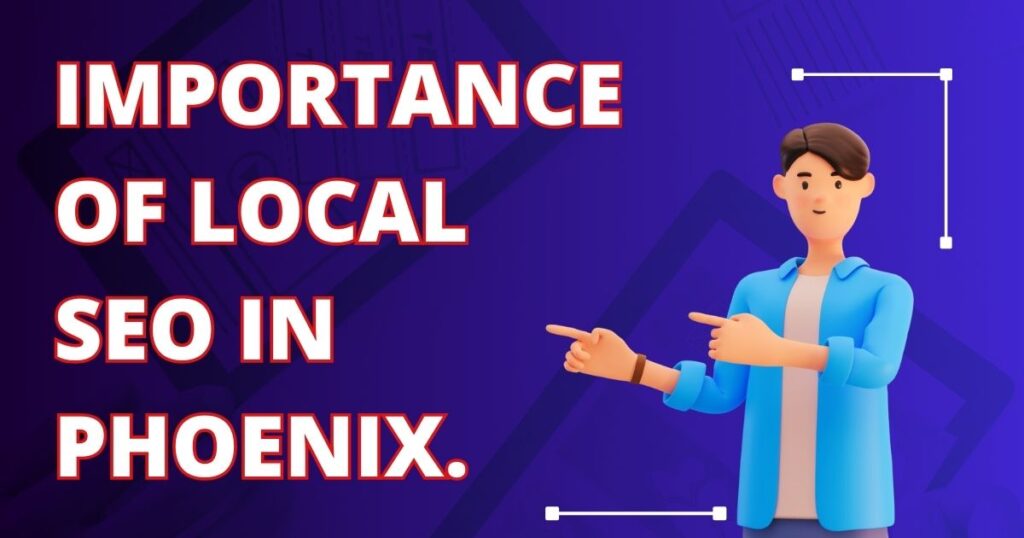
Importance of Local SEO in Phoenix.
Local SEO in Phoenix is critical for businesses trying to attract customers in the area and increase their visibility in local search results. Phoenix is a large and competitive market, therefore businesses must enhance their digital presence to stand out from the local competitors. Local SEO focuses on tactics that boost a company’s chances of appearing in search engine results when people search for services or products in their area.
Optimizing your Google My Business page, making sure your company’s name, address, and phone number (NAP) are the same on all internet platforms, and getting good feedback from customers are all examples of local SEO. Targeting location-specific keywords, producing locally relevant content, and obtaining backlinks from other nearby companies and websites are all components of local SEO. By improving their local search results, Phoenix businesses may increase foot traffic to their physical locations, generate leads from nearby customers, and raise their visibility in the community. Local SEO is a great way for Phoenix businesses to compete and attract local consumers.
Measuring SEO Success & ROI
Measuring SEO performance and return on investment (ROI) is critical for ensuring that your SEO efforts provide concrete results and justify the resources spent. Here are the important measurements and methodologies for determining SEO performance and ROI.
1. Organic Traffic.
- What to Measure: The volume of search engine traffic to your website.
- Why It Is Important: Increased organic traffic is a direct outcome of effective SEO. An increase in organic traffic suggests that your website is ranking better for relevant search terms.
2. Keyword Rankings.
- What to Measure: Monitor the ranks of desired keywords on search engines such as Google.
- Why it is important: Higher ranks for high-value keywords result in more visibility and traffic. Monitoring keyword ranking increases offers information about the efficacy of your SEO strategy.
3. Conversion Rate.
- What to Measure: The proportion of website visitors that complete desired activities (for example, filling out a form or completing a purchase).
- Why It Is Important: SEO is more than simply increasing traffic; it also involves turning that traffic into leads, purchases, or other meaningful activities. Higher conversion rates indicate that your SEO approach is addressing the appropriate audience and producing quality traffic.
4. Bounce Rate
- Bounce Rate: The proportion of website visitors that depart after just seeing one page.
- Why it is important: A high bounce rate might suggest that your website is not fulfilling users’ expectations or offering appropriate content. Reducing bounce rates with improved content and optimization indicates SEO effectiveness.
5. Backlinks & Domain Authority
- What To Measure: The amount and quality of hyperlinks leading to your website, as well as its total domain authority.
- Why It Is Important: Backlinks are an important ranking element for search engines. High-quality backlinks boost your domain authority and search ranks, giving your site more reputation and trust.
6. Return on investment (ROI).
- What to Measure: Calculate the money earned by SEO activities vs. the expenditures of your SEO operations.
- Why it is important: ROI measures the financial effect of your SEO strategy. If the money generated by increased traffic and conversions exceeds the cost of SEO services, your SEO efforts are deemed successful.
7. Lead Generation
- What to Measure: The number of leads obtained via organic searches?
- Why it is important: For service-based firms or businesses with lead-generation objectives, evaluating how many leads (e.g., inquiries, consultations) originate from SEO traffic is a clear measure of success.
8. Page Load Speed and User Experience
- What to Measure: Website load speed and overall user experience data (such as time spent on the site and page interactivity).
- Why it is important: Search engines like websites that load quickly and are user-friendly. Improving site speed and usability increases rankings and user happiness, resulting in improved conversion rates.
9. Click through Rate (CTR)
- What to Measure: The proportion of individuals that click on your website link after viewing it on a search engine results page.
- Why it is important: A higher CTR implies that your titles, descriptions, and Meta tags are successful in attracting visitors. CTR analysis may help you determine how successful your on-page SEO components are.
10. Local SEO Metrics (For Local Business)
- Metrics to track include Google My Business views, local search results, and local citations.
- Why it is important: Local SEO performance is evaluated by how visible your company is to customers looking for services in their area. These indicators demonstrate how successfully you’re recruiting clients in your immediate neighborhood.
- ROI may be calculated as follows: ([Revenue from SEO efforts−Cost of SEO services] {÷ Cost of SEO services})×100
- Why it’s important: This method provides a clear percentage reflecting the profitability of your SEO investment, allowing firms to justify their costs and plan future initiatives.

Conclusion
To summarize, SEO is a crucial component of any digital marketing plan, particularly in competitive areas such as Phoenix. Businesses may increase their online exposure, attract targeted traffic, and produce important leads by using successful tactics such as detailed keyword research, on-page optimization, technical SEO, content production, and local SEO. Tools like Position Punisher SEO Services Phoenix provide an aggressive method to gain top search engine ranks and outperform the competition, assuring long-term development.
Measuring the efficacy and ROI of SEO initiatives is crucial to understanding their influence on your organization. Businesses can use critical indicators like organic traffic, keyword ranks, conversion rates, and backlinks to make data-driven choices, improve tactics, and continue to optimize their SEO operations for the best outcomes. Finally, a well-executed SEO plan not only improves search engine results but also helps organizations remain ahead of the digital curve, resulting in long-term development and success.
 My Account
My Account 